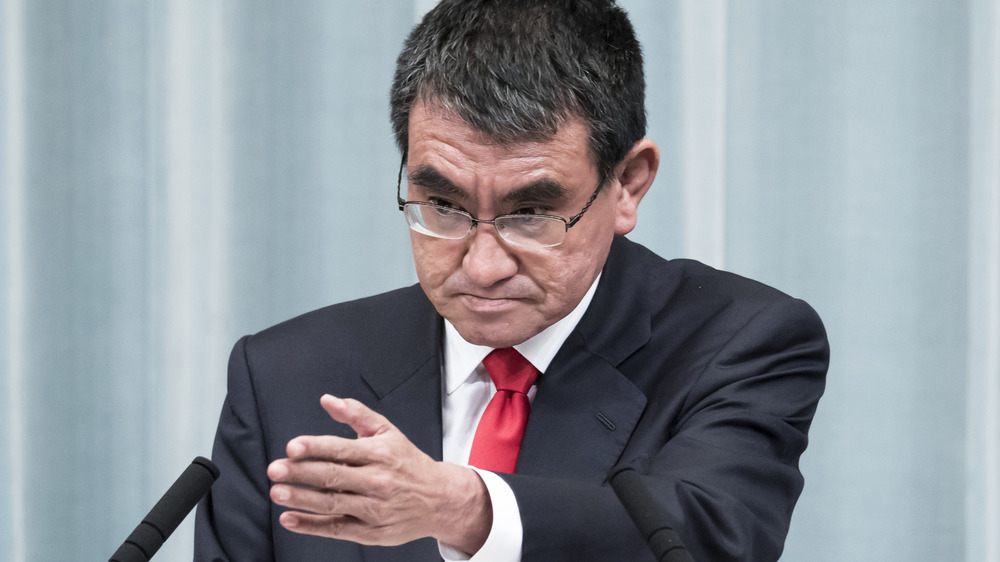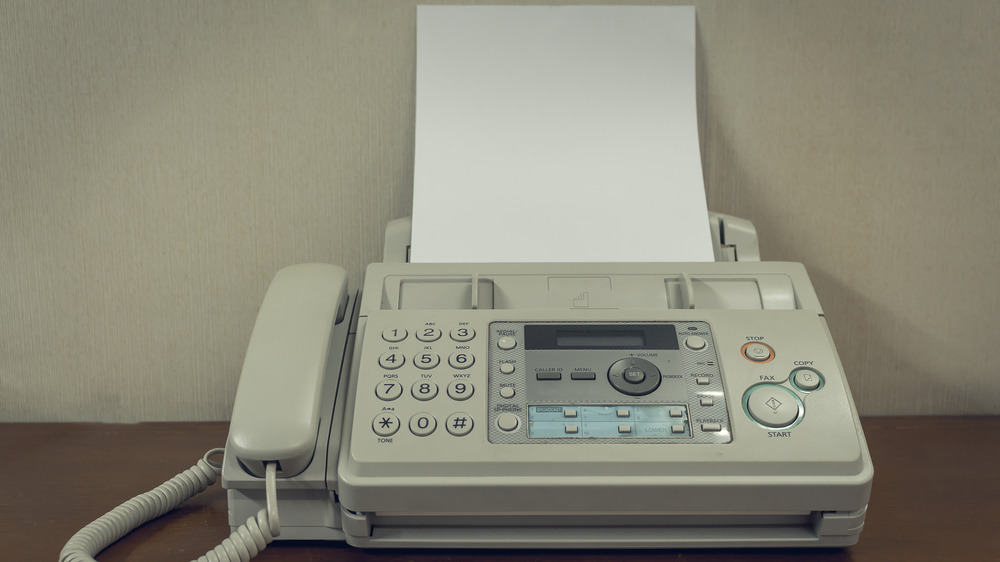The Truth About The Japanese Prime Minister's War Against Fax Machines
"My job is to clear the road of obstructions to allow the Ferraris and Porsches of digital innovation to speed through."
Vroom, vroom, Prime Minister Taro Kono. Yes, Japan's top, party-elected official passed through his tenure as Defense Minister, where he reaffirmed the strength of the Japan-U.S. Alliance (per the US Department of Defense), only to find himself facing a foe perhaps more intractable than the instability of the Trump administration: fax machines. And printers.
For the uninitiated, a hanko is a little cylinder with a family seal or corporate crest on the end that is stamped in ink and then on paper to authenticate a document. Hanko are everywhere in Japan in place of personal signatures. They're used on contracts, to amend mistakes on paperwork, etc., and they generally gum up the works and introduce inefficiency into procedures. Fax machines do much the same, as do printers. And so Kono-san also said, "Why do we need to print out paper? In many cases, it is simply because the hanko is required."
And so, all of Japan's regressive tech habits are intertwined, and its reputation as a futuristic country replete with giant Gundam statues and ghosts in shells is belied. In reality, Japanese bureaucratic and corporate practices, at least, are shockingly dated. The PM, though, is on a mission.
A bureaucratic tradition of slow-changing traditions
In 2017, the office of former Japanese Prime Minister Shinzo Abe announced its bold and likely overreaching "Declaration to Be the World's Most Advanced IT Nation." Sadly, and predictably, not much happened. New Prime Minister Taro Kono stepped into his role feeling "very heavy responsibility," and ready to go gangster with a baseball bat to some hated tech like that scene in 1999's Office Space. Instead, lawmakers have called Kono-san's desire to modernize a "hasty and excessive move." And the hanko? Well, as Takao Tokui, chairman of the All Japan Seal Industry Association (yes, a real thing) said, "We are feeling a sense of crisis that the frequency of hanko use is decreasing."
Where does such reluctance to change come from? The truth is, Japan, by and large, has an ultra conservative, "if it ain't broke, don't fix it" mentality, as South China Morning Post describes it, at least when dealing with anything considered traditional or, minimally, habitual. Japanese news commentators often use actual ink on hand-held paper for charts and graphs on broadcasts, not anything digital. Many stores are starting to accept forms of payment beyond cash, but this is a very recent change, even within only the past five years. Most bills (electricity, gas, and the like) can only be paid physically, in person, at convenience stores. Change comes slowly in Japan, and at the highest level of government, where Kono-san resides, he faces an "army of petty bureaucrats and professional pen-pushers."
Fax machines are still used a shockingly large amount worldwide
That's not to say that Prime Minister Kono is completely without support. As Interesting Engineering says, Environment Minister Shinjiro Koizumi has eliminated the need for hanko for certain paperwork (thus eliminating the need for those documents to be faxed or copied), saying, "It is just too inefficient." Likewise, Japanese immigration has recently allowed some of its documents to be submitted online, a move that would have been impossible even a few years ago. In this way, Kono-san has inadvertently taken up the "paperless office" or "go green" banner waved elsewhere in the world.
Nonetheless, over 17 billion documents are sent via fax worldwide every year, as eFax reports. Private and public sectors around the world cling to their 43 million fax machines no matter the data insecurity or cost of a single fax (~$1.40), and despite the ease of whipping out an iPhone and snapping a picture of a document, the simplicity of digitally Adobe Acrobat-driven e-signatures, or the clunky inconvenience of landlines for fax machines or toner for printers.
In Japan, households and small businesses, and not just government and corporations, need convincing, too. In fact, the Times says that about one-third of Japanese households own a fax machine. "Faxing ensures that somebody sees what you send," furniture store-owner Takayuki Ogisohe said. "If there is a stack of papers in front of you, it means you have that much work to do."


